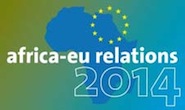December 19, 2013
Posted: 12:06 PM CEST
by ecdpm
in Africa Change Dynamics, Conflict, security and resilience, Cross-cutting issues, ECDPM, Economic Governance, Food security, Political economy analysis, Strengthening European External Action, Trade and Regional integration
This year a lot had happened in international development and co-operation. The EU External Action Service review was launched, the African Union celebrated its’ 50th anniversary, and dialogue around the post-2015 agenda began to take centre stage. We look back over the last year of ECDPM blogs and share the top ten of 2013. The most viewed blogs have covered topics from political economy analysis to regional integration in Southern Africa. Top ten blogs of 2013: EEAS review and development: yet another EU coordination challenge? What and who drives regional integration in Southern Africa? Le ...
+++ Introducing the ECDPM Challenges blog series. +++ Over the next seven weeks ECDPM will share its thoughts on the major challenges ahead in 2014 for Africa - EU relations. With a specific thematic approach each week, our programmes will analyse and evaluate the progress that can be made in the coming year, and what obstacles may lay ahead for policy makers as they work towards effective international development cooperation. The next few years will be crucial in shaping EU-Africa relations. What will be on the minds of the leaders from across Africa, the EU institutions and ...
September 10, 2010
Posted: 14:24 PM CEST
by ECDPM Editorial Team
in ECDPM
European Commission President José Manuel Barroso made his first ever “State of the Union address” (click also here for details) to the European Parliament on 7 September. Setting out proposals for the 2011 EU work programme, Barroso outlined that he, together with EU High Representative Catherine Ashton, will present a vision of how the EU can maximise its role in the world. He informed MEPs that the Commission will commit an extra €1 billion to the Millennium Development Goals (MDG) at the UN summit on 20-22 September. A major review of EU development policy and ...
September 10, 2010
Posted: 14:22 PM CEST
by ECDPM Editorial Team
in ECDPM
A meeting of the European Union Civil Society Organisations (EU CSO) Steering Group and the African Steering Committee was held in Brussels on 7 September to prepare for a broader inter-continental Civil Society Forum, agreed to be held from 8-10 November in Egypt. ECDPM was involved in the facilitation of this meeting following a request from both the EU and AU groups. The inter-continental forum will discuss CSO inputs to the Joint Africa-EU Strategy (JAES) new Action Plan to be agreed at the 29-30 November AU-EU Summit. Participants also agreed that the meeting in Egypt ...
September 10, 2010
Posted: 14:11 PM CEST
by ECDPM Editorial Team
in ECDPM
Economic Partnership Agreements are one trade option that African countries can pursue to support coordinated trade and regulatory reform in services together with unilateral, regional and multilateral reforms. However, according to this paper from the World Bank, an EPA is unlikely to offer much in terms of improved access to EU services markets, especially for temporary movement of unskilled workers, a key issue for African countries. Hence, the rationale for signing an EPA will be driven by African countries own domestic reform strategies. The main impacts of a services EPA for African countries would come ...
September 6, 2010
Posted: 14:35 PM CEST
by ECDPM Editorial Team
in ECDPM
The current post-crisis environment—and fragile economic recovery—increases the importance of aid for trade. Global rebalancing and tightened fiscal budgets in the short to medium term also place renewed emphasis on aid effectiveness. This note by Bernard Hoekman and John S. Wilson of the World Bank identifies four options to enhance the effectiveness of the multilateral aid for trade initiative: (i) expanding market access for least-developed countries through leadership by middle-income G-20 members; (ii) creating a mechanism to identify good practices in domestic regulation of service markets and other “behind-the-border” trade-related policies; (iii) leveraging the dynamism ...
September 6, 2010
Posted: 14:34 PM CEST
by ECDPM Editorial Team
in ECDPM
Politics often explains why development assistance has been effective or not. This paper from The Policy Practice explains how political economy analysis (PEA) is being more systematically used by development agencies to understand political issues in partner countries. It highlights Nigeria and Bangladesh as two positive examples where PEA has demonstrated its analytical and operational usefulness. Much remains to be done, however, to ensure stronger uptake of political economy analysis the paper argues. On the supply side, this includes getting the ‘product’ right, and better communicating the message. On the demand side, there is a ...
September 6, 2010
Posted: 14:34 PM CEST
by ECDPM Editorial Team
in ECDPM
Heads of State will meet on 20-22 September to review progress towards the Millennium Development Goals (MDGs). International Alert argues in its report entitled “Working with the grain to change the grain: Moving beyond theMillennium Development Goals” that the MDGs are poor measures of development progress and calls for a new development narrative to replace the MDGs based on a global vision for change in which development is recognised as a local, endogenous process while the role of international agencies is to promote, catalyse and nudge change, based on a sophisticated understanding of the political ...
September 6, 2010
Posted: 14:31 PM CEST
by ECDPM Editorial Team
in ECDPM
Recent EU policy proposals note that greater globalisation has led to EU’s policies on developing countries having many more systemic ‘side effects’. The old dividing line between the EU’s domestic and external policies is rapidly losing relevance. ECDPM’s latest Discussion Paper argues that notwithstanding these changes and the legal obligation in the Treaties, the EU has not really been successful in fundamentally reforming some of its more obviously incoherent policies. The only way for Europe to move forward with PCD and consolidate its international credibility and legitimacy under the present multitude of global challenges is ...
September 6, 2010
Posted: 14:30 PM CEST
by ECDPM Editorial Team
in ECDPM
The African Governance Architecture (AGA), established under the leadership of African Union Commission (AUC), is the evolving political and institutional framework to facilitate, coordinate and promote democracy, governance and human rights in Africa. The AUC has organised a series of consultations with stakeholders to build consensus on its design, mandate and function. In these, a recommendation has been elaborated to establish an African Governance Platform (AGP) as a mechanism for strengthening dialogue, coordination and synergy amongst African Union Structures with a formal mandate in governance, democracy and human rights, including Regional Economic Communities, with a ...


















